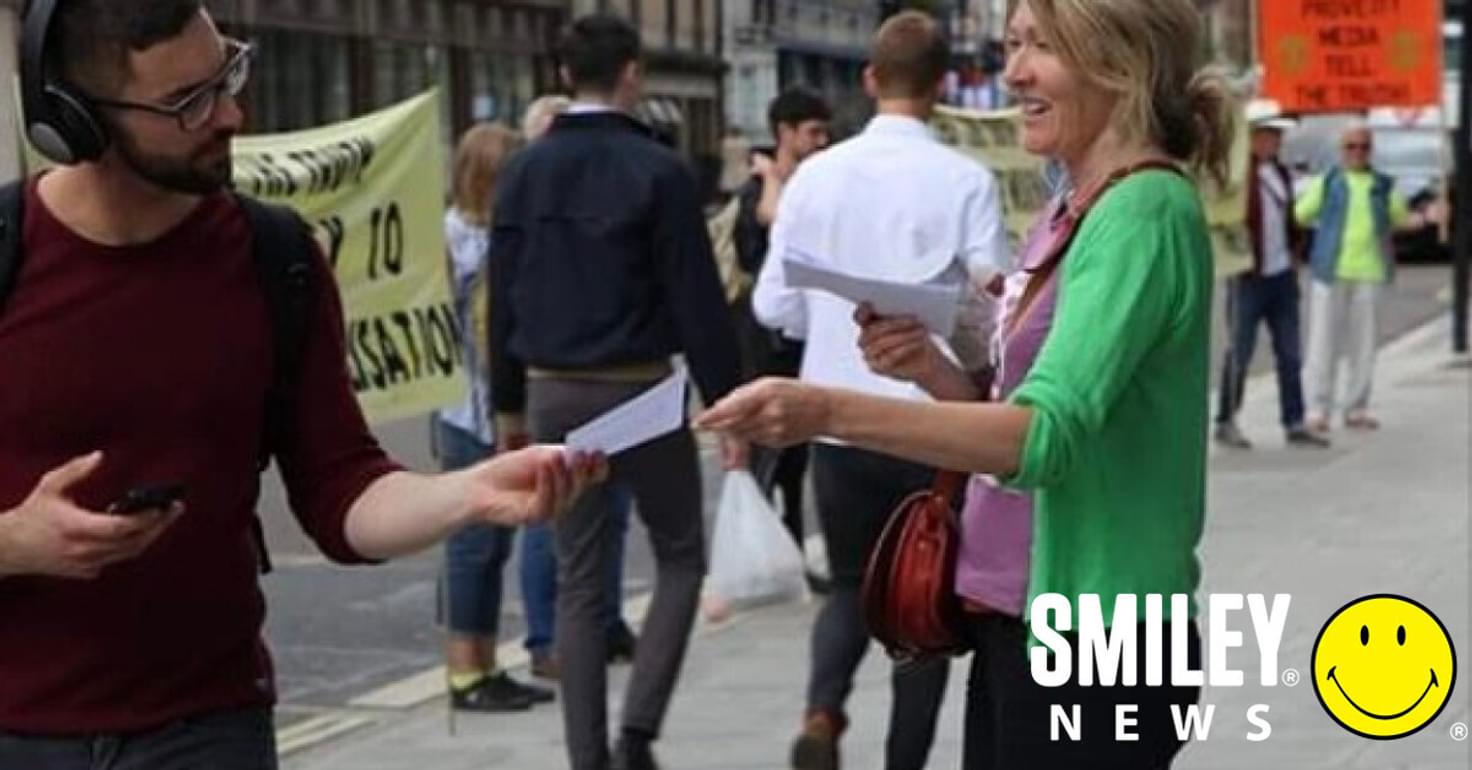
Words by Smiley Team
Ex-BBC television producer Janet Everett is determined to stop plastic pollution. Whether she’s singing about the plastic clogging rivers, or dressed as a strawberry to highlight plastic waste from fruit juice bottles, she is constantly pushing to end wastage.
But she also lives by the Gandhian philosophy that you should “be the change you wish to see in the world”. This has led her to go three years without buying any plastic at all - not even the tiniest bit of soft plastic or a single bottle top.
Instead, she buys essentials like shampoo and washing liquid in refillable bottles. Any fruit or vegetables that she can’t find loose, she purchases in tins because they’re easier to reuse. “If I can't get it without plastic, I won't buy it,” Janet says.
So, how does she do it? “You have to completely change your mindset,” she explains, “I see it as rebelling against our consumer-based society of disposability.”
Janet describes how she replaces plastic products by reusing, repairing and making things herself. Old jumpers or gardening string become dishcloths. Rather than buying plants in plastic pots, she shares seeds and cuttings with friends and neighbours, planting them in old tins or jars.
“It’s a way of living the changes we're going to need to see in the future. I don’t kid myself that doing my bit is going to make an impact on the mountains of waste out there and the entire problem. But I'm ready for the changes when they come,” she says.
This dedication is deeply rooted in Janet’s past. Since the age of 10, she has been obsessed with the problem of plastic pollution. She remembers reading John Steinbeck’s 1962 travelogue, ‘Travels with Charley’ which decries non-biodegradable waste in the US. Walking along the banks of a river near her childhood home, she recalls her disgust at the sight of plastic floating in its waters.
“As a child, I was really worried about plastic,” she says. “I remember eating things in little plastic tubs and asking my mum where they went. She said they get buried. So I did a little experiment in my back garden and found that it didn't biodegrade, meaning it wouldn’t ever go away.”
[Read positive news about initiatives to protect the welfare of people and the planet]
Her discovery eventually led her to fully reject plastic from her own life in 2018. But it’s not easy. She’s unsure whether it’s more or less expensive than living without plastic and admits that, it’s relatively convenient for her living in eco-conscious Brighton, where there are plenty of refill stores. But elsewhere this won’t be the case.
While she prepares for a future without plastic consumption, she hopes governments and companies will do so too, introducing legislation to make plastic-free living easier for everyone, everywhere.
“Governments around the world are pinning their hopes on recycling, which is highly energy-intensive and relies on toxic chemicals or incineration to provide energy from waste which is equivalent to burning crude oil as feedstock,” she says. “Whereas recycling is just another way to get rid of waste, reuse systems are genuinely sustainable.”
Find out more about Janet’s campaign to stop plastic pollution on her Facebook page.